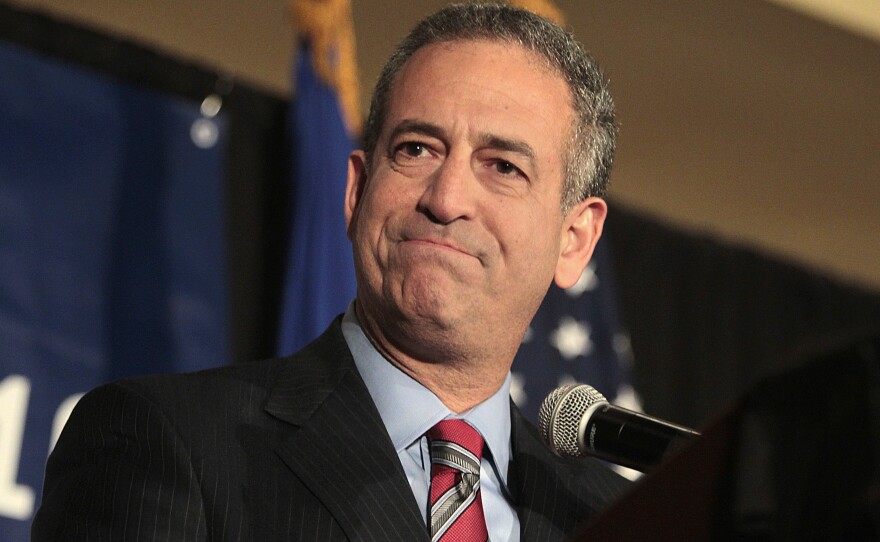Russ Feingold might as well have flown into the Senate race in Wisconsin on a gyrocopter.
The former three-term senator, perhaps best-known for his name being attached to the now-defunct preeminent campaign-finance legislation is getting back in the game. And he took aim at big money in politics.
"People tell me all the time that our politics in Washington are broken and that multimillionaires, billionaires, and big corporations are calling all the shots," the Wisconsin Democrat said in his announcement video. "They especially say this about the U.S. Senate, and it's hard not to agree."
Feingold will square off in a rematch with Sen. Ron Johnson, R-Wis., who ousted Feingold in the Tea Party wave of 2010. Feingold's landmark bipartisan McCain-Feingold campaign-finance reform bill was dismantled by the Supreme Court in 2010, leading to the rise of Super PACs and other outside influences that helped defeat him six years ago.
"[W]hat are we going to do, get rid of the Senate?" Feingold continued in the video. "Actually, no one I've listened to says we should throw in the towel and give up, and I don't think that, either. Instead, let's fight together for change."
The former Democratic senator has long been expected to challenge Johnson, one of Senate Republicans' most vulnerable incumbents this cycle. The Democratic National Senatorial Committee quickly announced its endorsement of Feingold, calling him "a tenacious champion for the people of Wisconsin."
Though Johnson won by 5 points in a midterm year, Democrats believe the terrain will be much more favorable in a presidential year in blue-leaning Wisconsin.
Polling has shown Feingold ahead of Johnson, who is one of the Senate's most conservative members despite the left-leaning tilt of his state. An April Marquette University poll showed Feingold with a 16-point lead, while a March survey from the automated and Democratic Public Policy Polling gave him a 9-point edge.
But while Feingold may still despise the influence of big money in politics he spent his career fighting, it's one he'll still have to reckon with in 2016. Six years ago, he refused help from the national party with TV ads, while Republicans poured money in to help Johnson, a wealthy plastics manufacturer, who largely self-financed his race.
This time around, Democrats have said Feingold will have to find a way to accept the new state of play, but Republicans will be eager to charge hypocrisy if he accepts outside help.
The race will be one of the most critical in the battle for the Senate. Democrats need to flip five Senate seats to recapture control of the chamber. Republicans are largely playing defense this cycle in blue states, like Wisconsin, which President Obama carried twice.
Feingold just ended a stint with the State Department as a special envoy to Africa. He said he would spend the summer traveling across the "state listening carefully to my fellow Wisconsinites."
But Republicans pointed to Johnson's win six years ago, predicting the Democrat's comeback effort would fail.
"After decades in politics, Feingold's ego still can't grasp that he was soundly defeated by Oshkosh job creator Ron Johnson in 2010," National Republican Senatorial Committee communications director Andrea Bozek said in a statement. "Wisconsin families rejected Feingold's broken promises and his liberal record once and they are going to do it again."
Copyright 2015 NPR. To see more, visit http://www.npr.org/.






